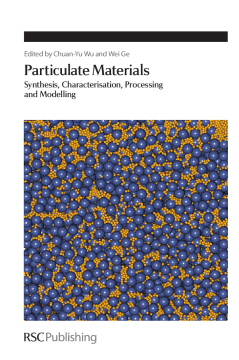
Additional Information
Book Details
Abstract
Naturally occurring or manufactured through chemical and/or physical processes, particulate materials are substances consisting of individual particles which have significance to the global economy, society and environments. Due to the diversity and intrinsic nature, manufacturing, handling and processing of particulate materials still face numerous challenges. Aimed at addressing these challenges, this book contains a selection of papers discussing the state-of-the-art research in particulate materials science that were presented at the UK–China Particle Technology Forum III held at Birmingham, UK in 2011.
Classified into four distinct topics namely synthesis, characterisation, processing and modelling, the chapters showcase the advances in these areas including a range of advanced synthesis methods for example, spray-pyrolysis, supercritical fluid synthesis assisted with ultrasound, continuous synthesis using supercritical water, hydrothermal synthesis of nano-particulate materials and jet milling. For characterisation, various methods for characterising particulate materials at both particle and system levels are introduced and how these properties affect the behaviour of particulate materials in various processes, such as inhalation, filling, and consolidation, are discussed. In the processing section, recent advances such as capsule filling, micro-dosing, dry granulation, roll compaction, milling, and more are presented. The last section concerns mathematical and numerical modelling in particulate materials, for which the book includes both analytical methods and advanced numerical methods, such as discrete element methods (DEM), computational fluid dynamics (CFD), lattice Boltzmann methods (LBM), coupled DEM/CFD and DEM/LBM, and their applications.
Particulate Materials is aimed at research communities dealing with these diverse materials, and scientists and engineers in powder handling industries, such as pharmaceutical, food, fine chemical and detergents.
